Fireworks, wine and history as Swiss celebrate National Day
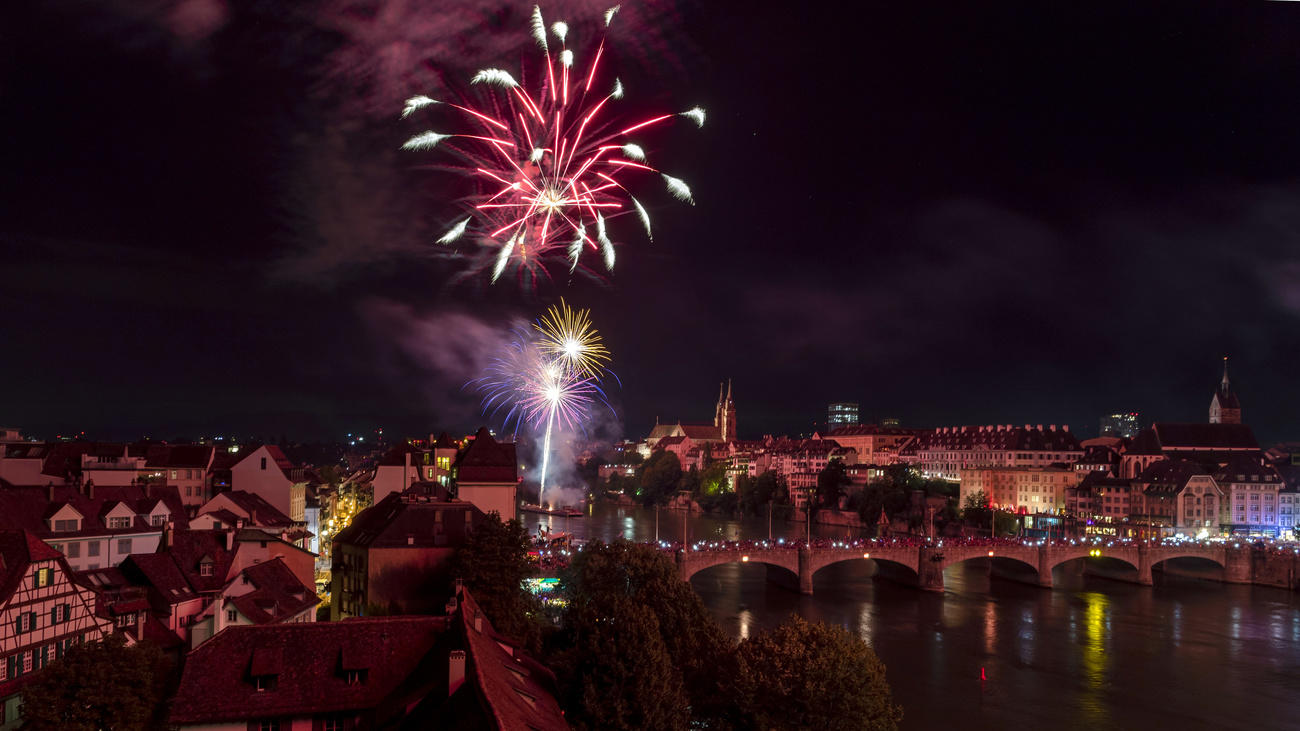
Citizens and politicians alike have celebrated Swiss National Day across the country.
Festivities marking Switzerland’s national holiday of August 1 began on Wednesday night, when the traditional fireworks – despite some complaints by environmental groups about their effects – began to be heard around the country.
The biggest pyro-gathering was in Basel (above), where some 110,000 watched the firework display lighting up the clear night sky over the river Rhine.
On Thursday, a public holiday for most in the country, while families and communities came together, one high point was the historical Rütli meadow in canton Uri, where the original contract to form the confederation of Switzerland was signed in August 1291.
Over 2,200 people (a record number) turned up at the historic field, where the guests of honour were representatives of the Swiss fire brigades as well as local deputies – examples of the militia and volunteer culture which marks the “gold standard of the Swiss participative democracy”, in the words of former government candidate Heidi Z’graggen.
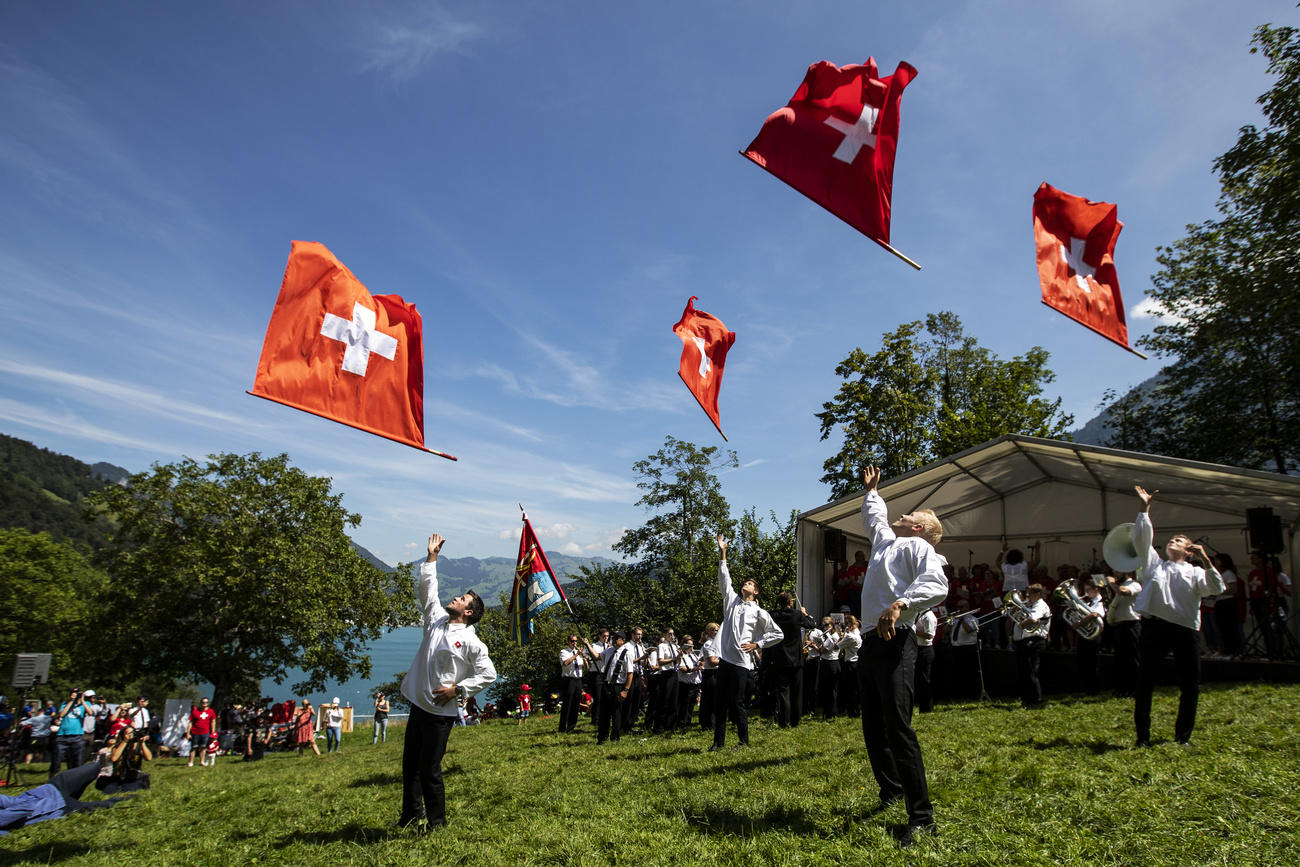
Further south, on the shores of Lake Geneva, the national holiday coincided with another historic event which has been taking place in Vevey for two weeks now – the Fête des Vignerons wine festival.
In the huge amphitheater built especially for the festival, spectators watched a parade by the Swiss Guards and an aerial show put on by the Patrouille Suisse before the country’s president Ueli Maurer delivered an address focusing heavily on history and tradition.
The Swiss confederation is a “legacy” passed down by dozens of previous generations, said Maurer – a legacy for which he is “endlessly grateful”.
Citizens can either “waste” this heritage or “improve it and pass it on in turn, with added-value”, he said.
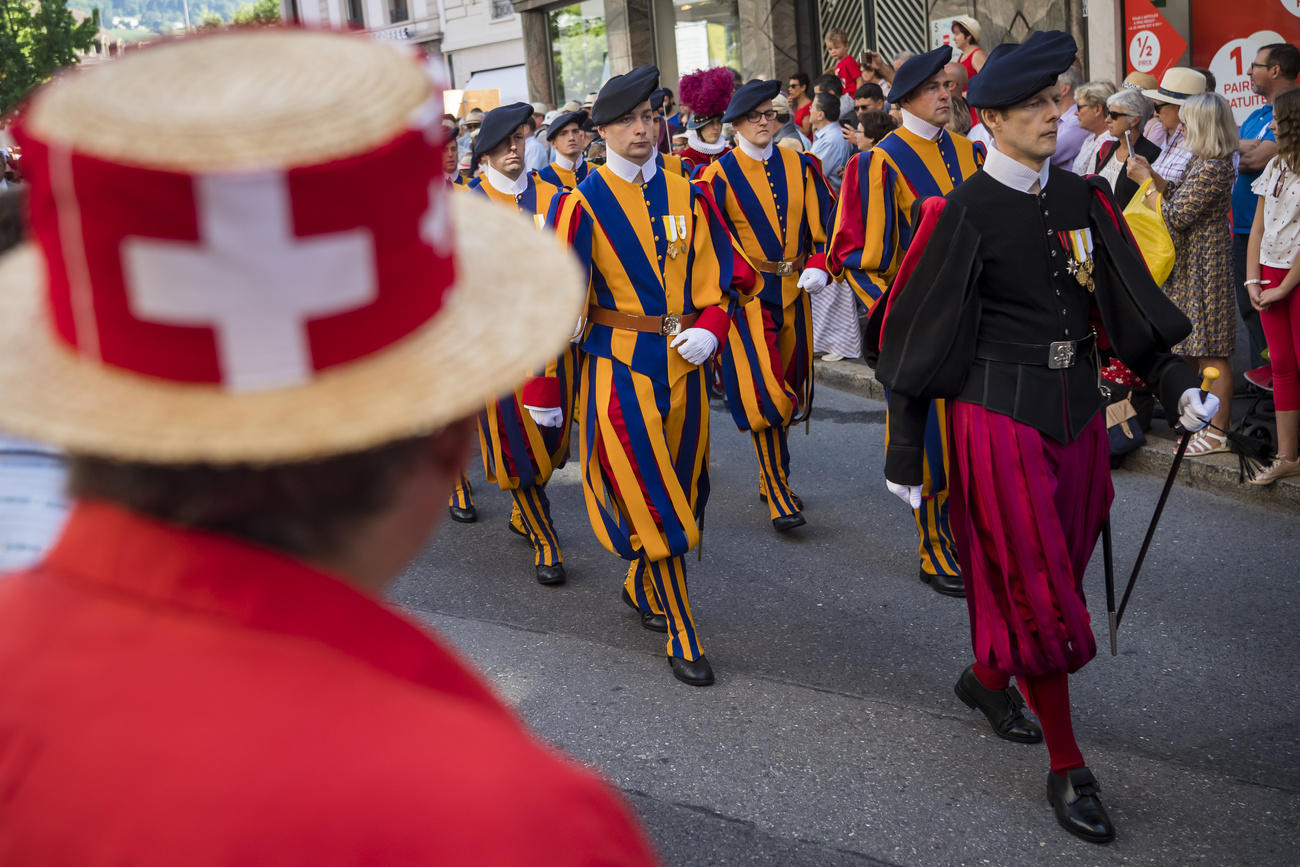

Maurer also alluded to the situation in Europe and the current stand-off between Switzerland and the European Union (EU) over a contentious framework accord that would regulate relations between the two.
The People’s Party (right-wing) politician said that Switzerland has a choice between “freedom and dependence”, alluding to the often-strong sentiment to keep the country free from interference by or membership in such foreign bodies.
The Europe question
The EU was a common theme across several addresses given by Maurer’s cabinet colleagues on a day in which ministers sometimes zigzag across the country in order to speak to as many different groups as possible.
Karin Keller-Sutter (justice minister, below) said in St Gallen that the EU should not be seen as an enemy, and that Swiss citizens should recognize that the Brussels body is a force for stability on the continent. It is also Switzerland’s largest trading partner, she said.
Foreign Minister Ignazio Cassis, meanwhile, who was due to give speeches in three different languages across the country on Thursday, said in Bern that Switzerland would have to battle with Europe to secure its interests, all the while maintaining its international status as an important – and neutral – actor.
Guy Parmelin, meanwhile, the minister for economics, lauded the system of direct democracy and the relationship between state and citizen in Switzerland which is “almost of a spiritual nature”.
“Here, civil liberties are assured, political culture is a tangible reality, pluralism is guaranteed, electoral processes are reliable, safe, and transparent, and the government is free of external intervention,” the People’s Party politician said.
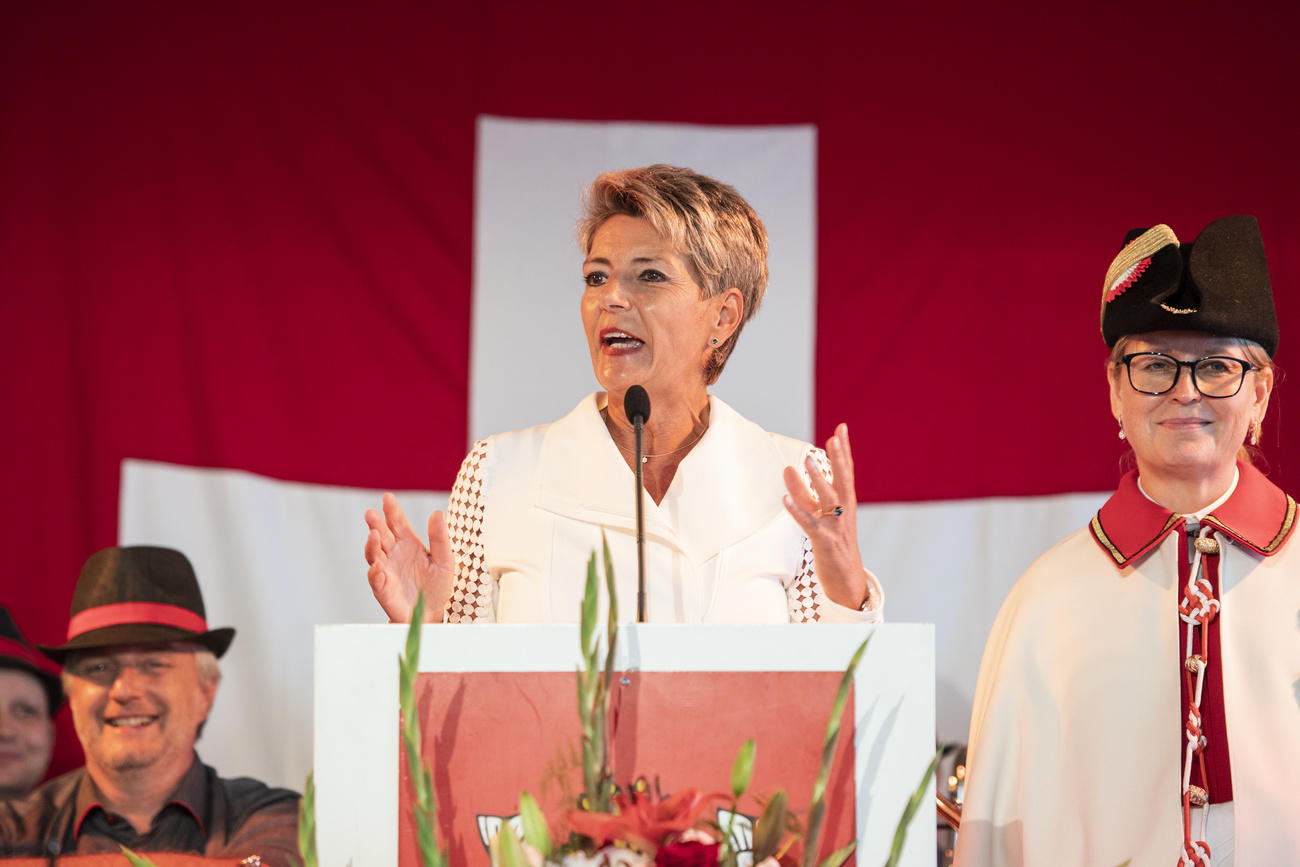

In compliance with the JTI standards
More: SWI swissinfo.ch certified by the Journalism Trust Initiative


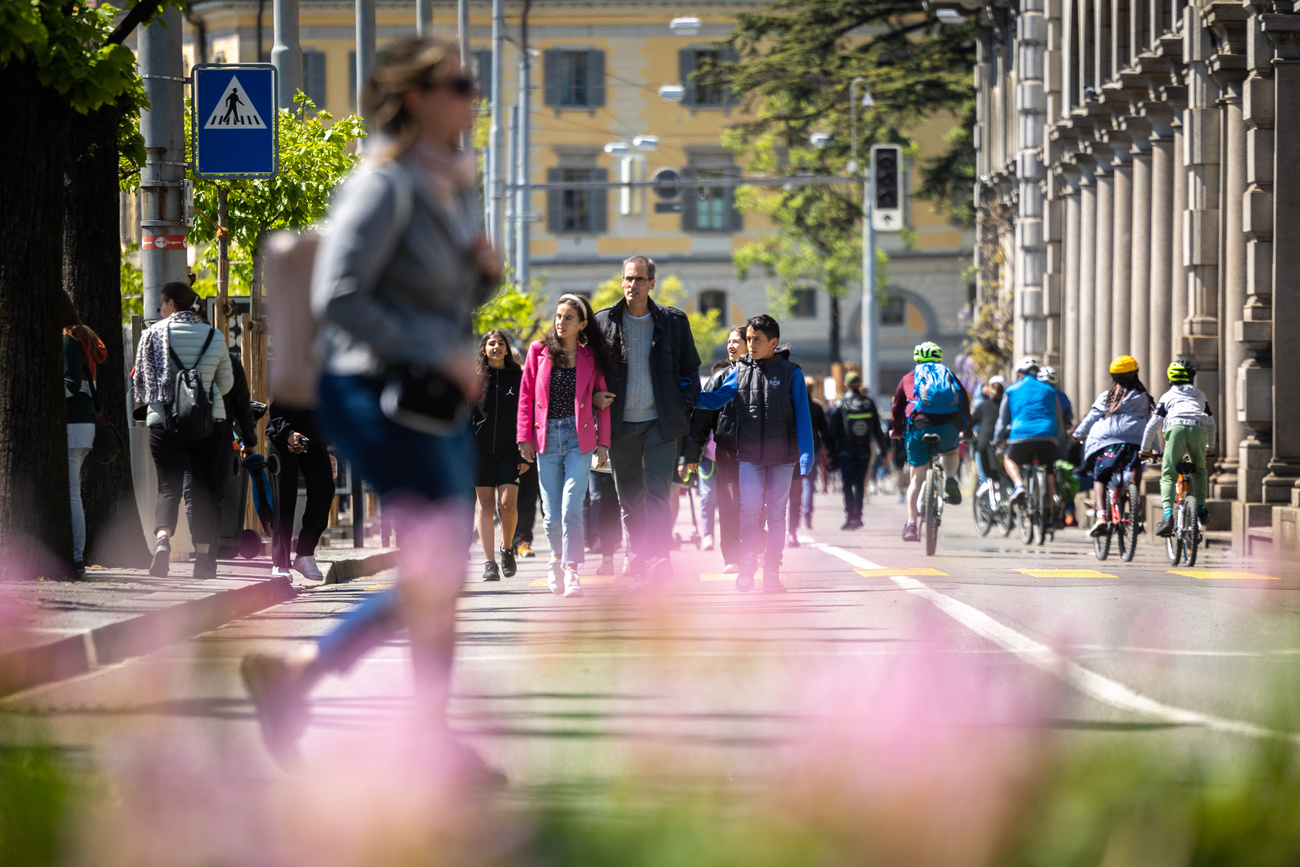





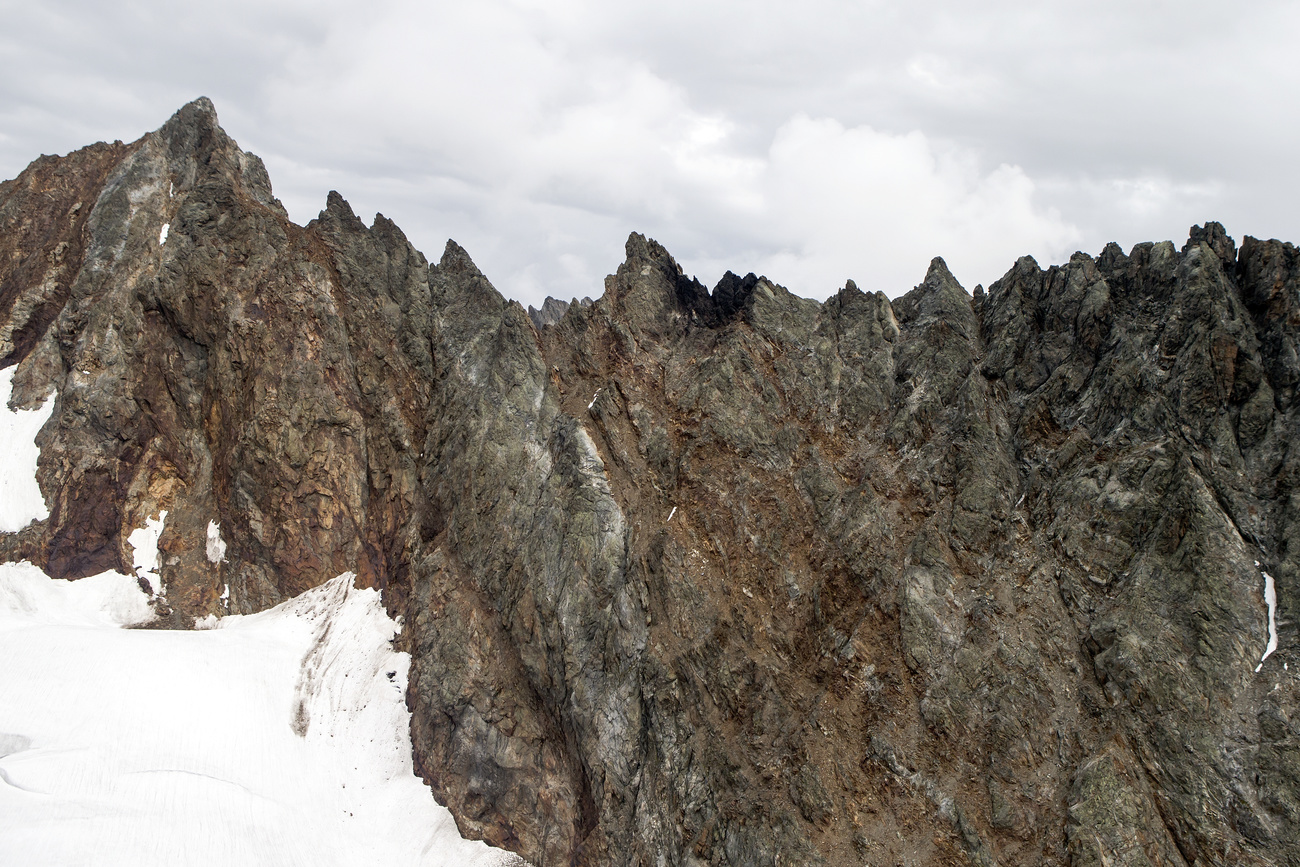
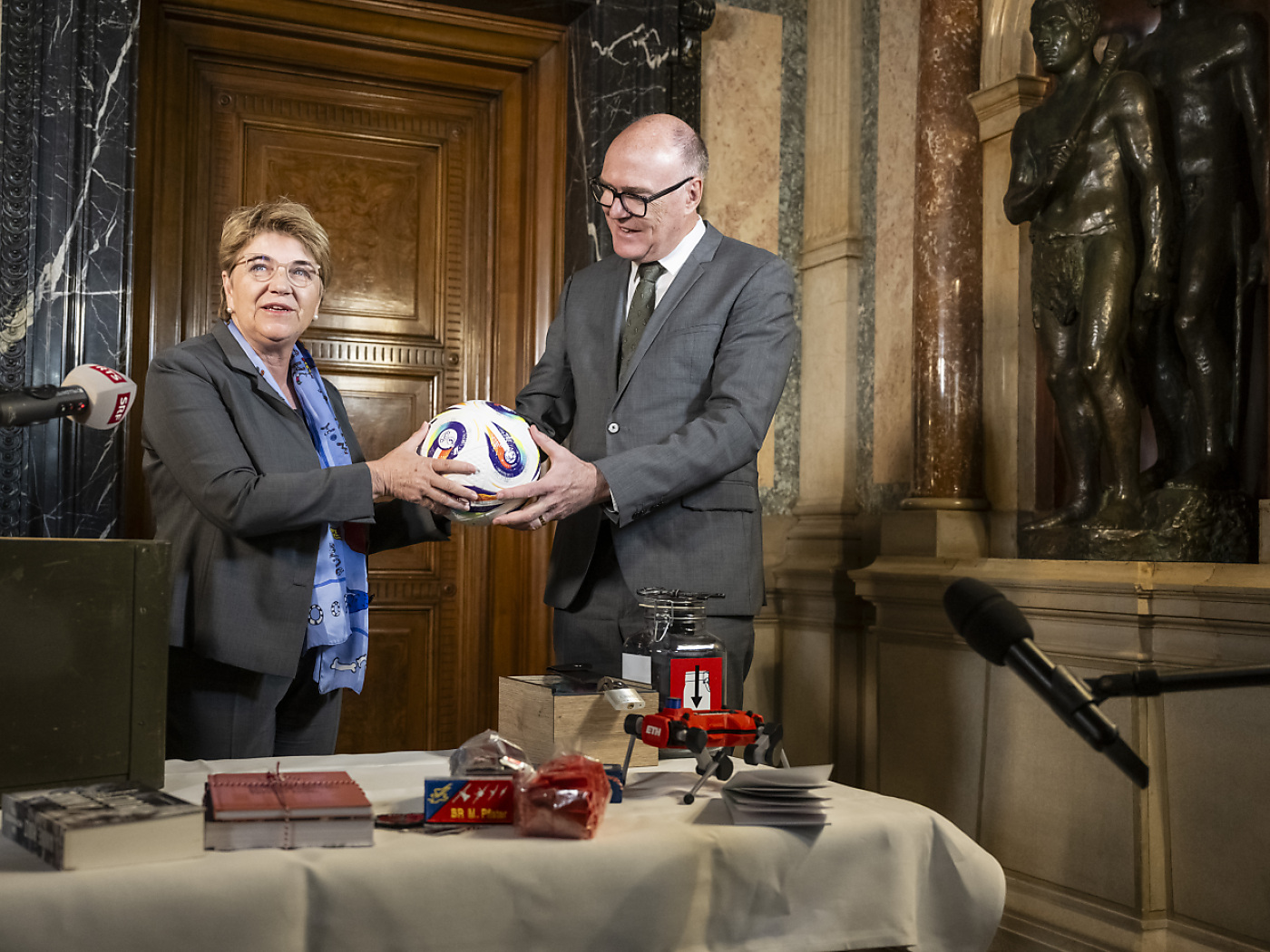
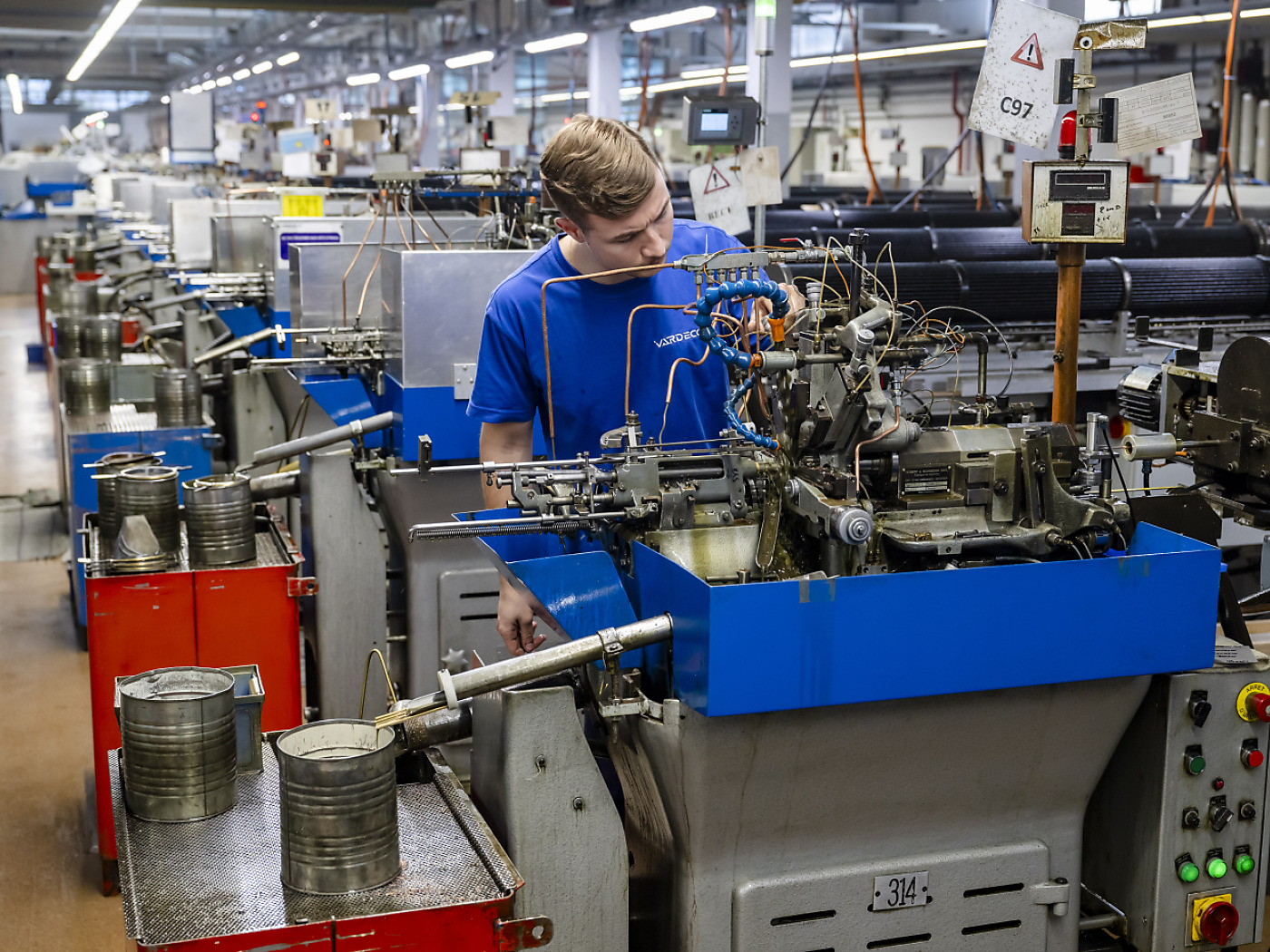


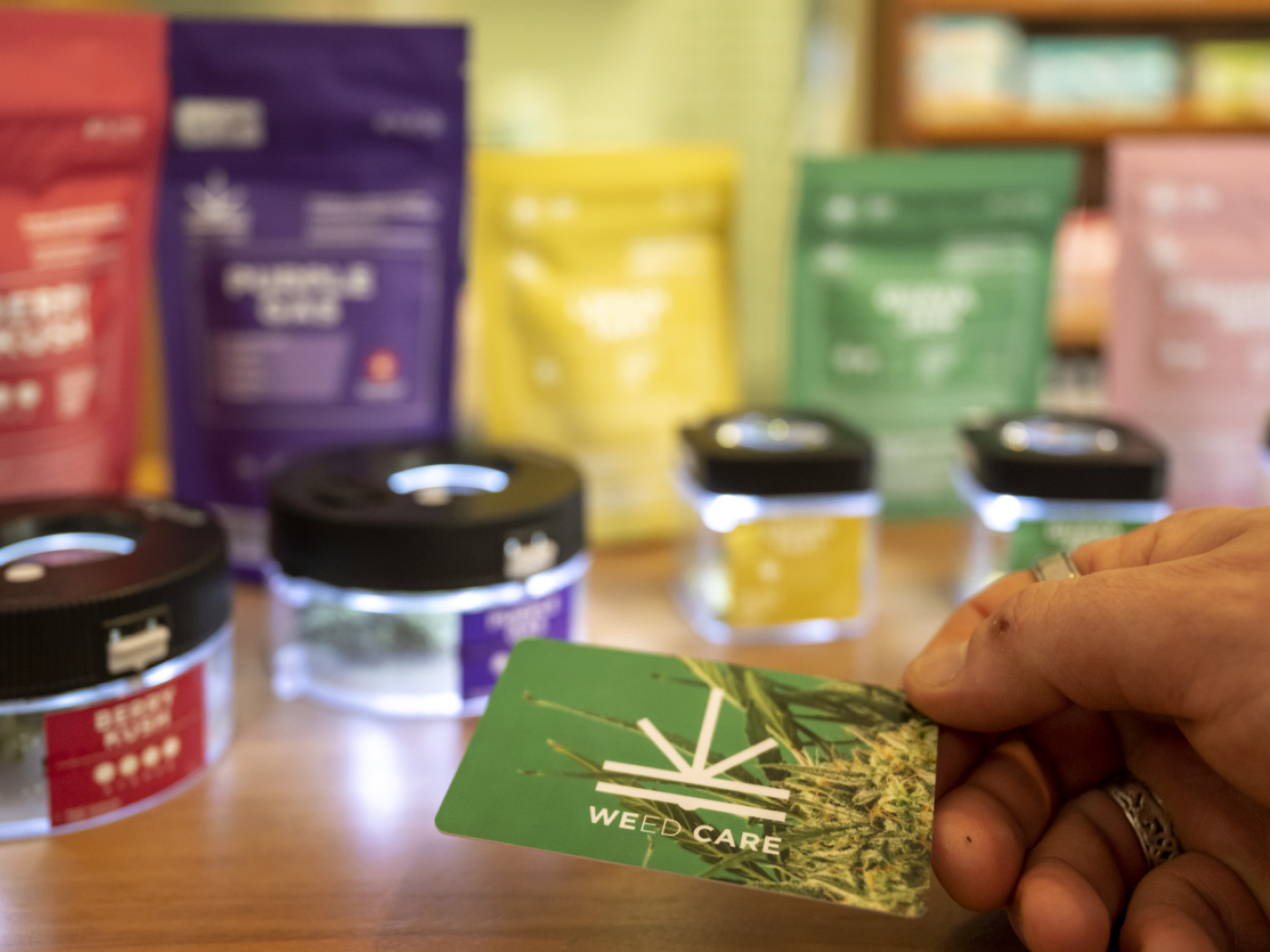

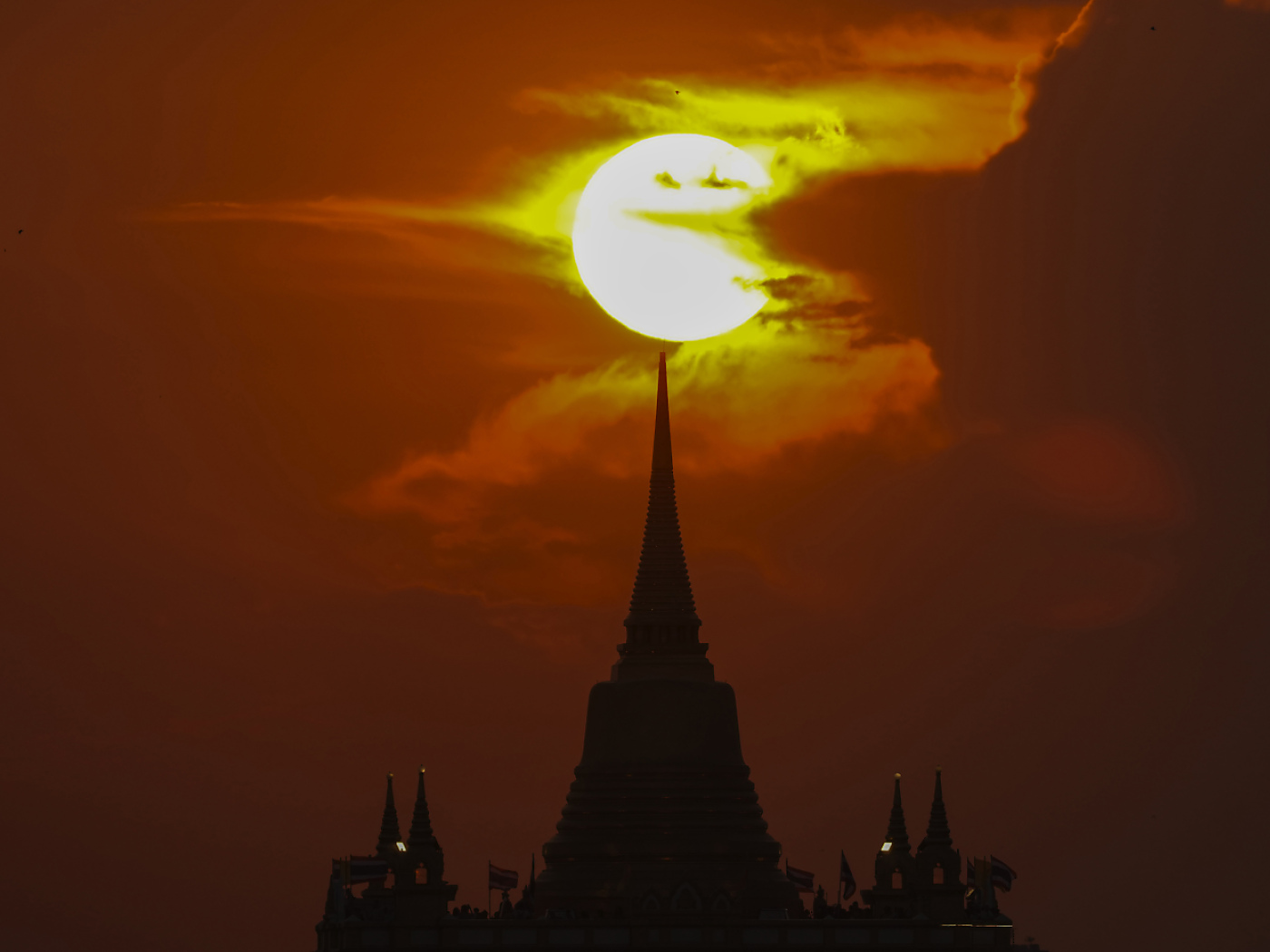

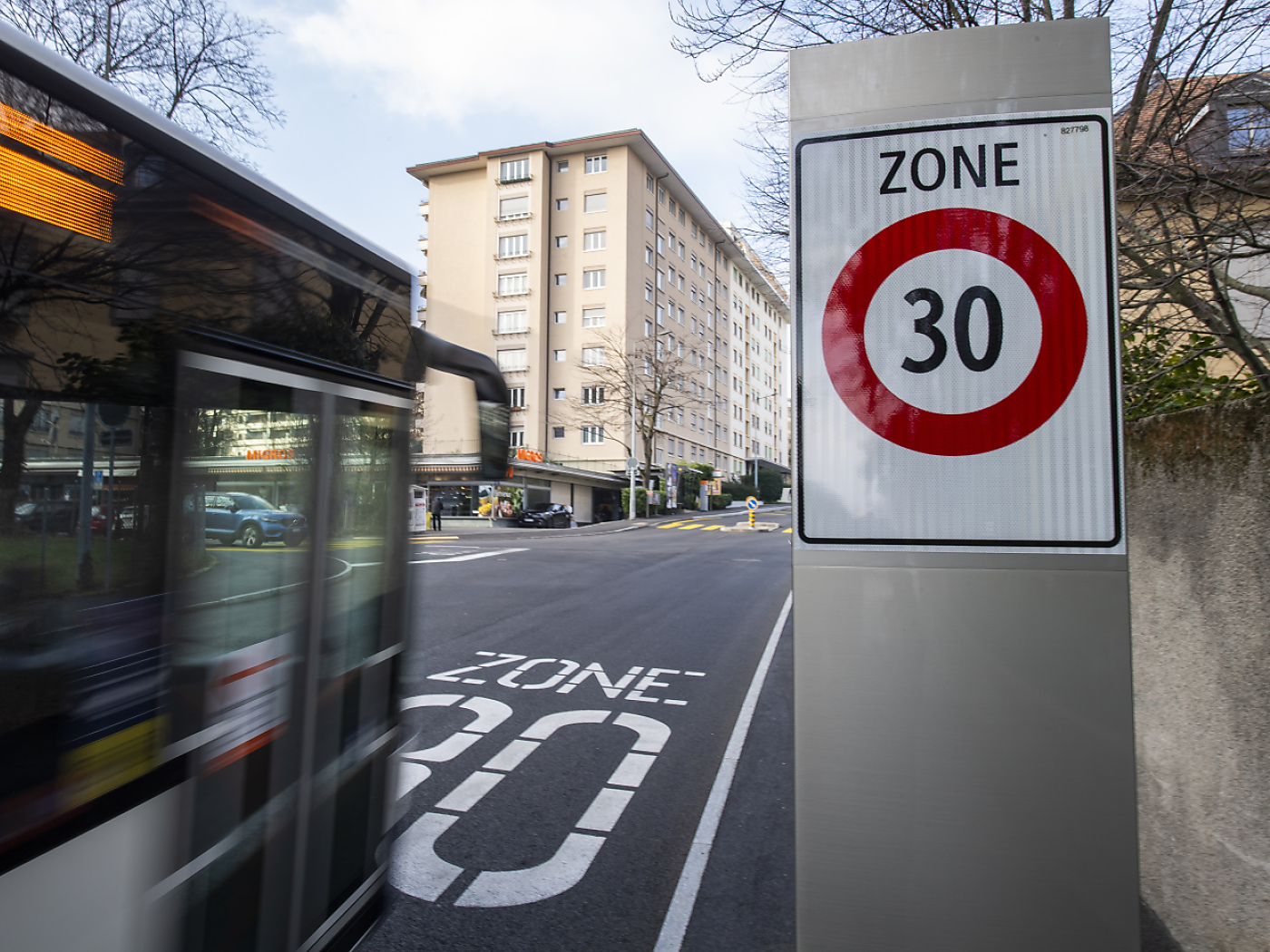
You can find an overview of ongoing debates with our journalists here . Please join us!
If you want to start a conversation about a topic raised in this article or want to report factual errors, email us at english@swissinfo.ch.